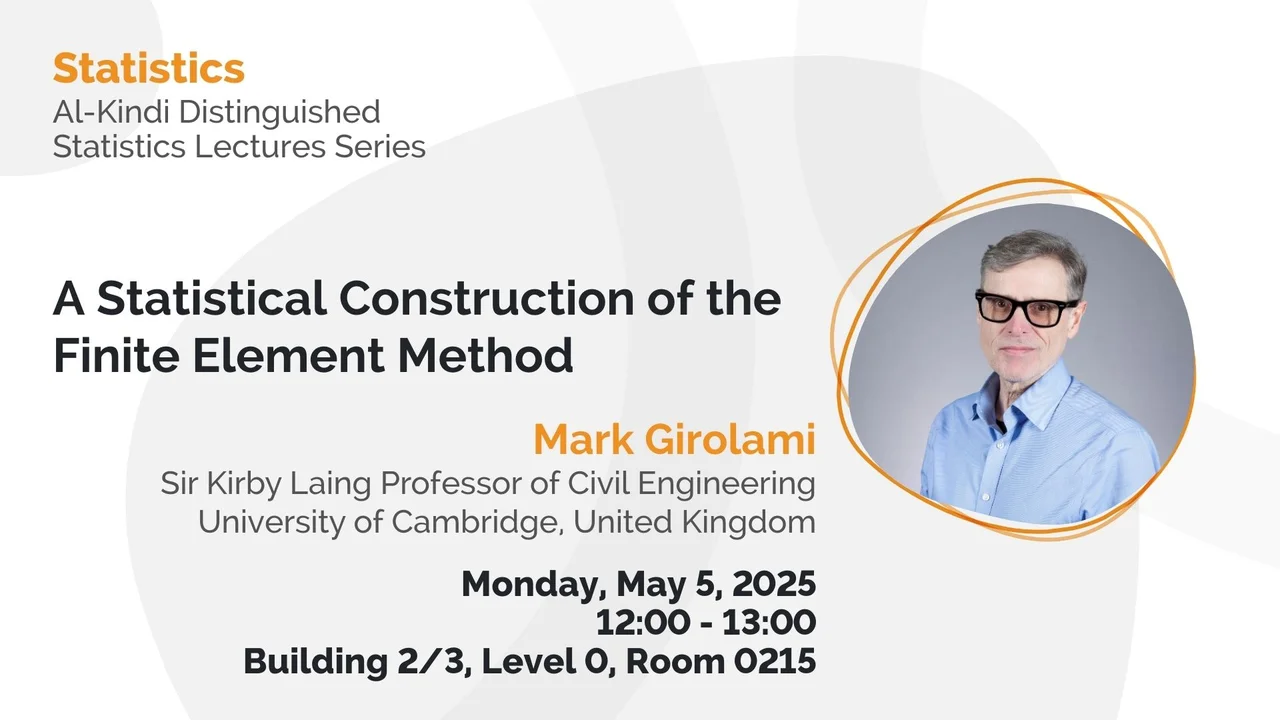
A Statistical Construction of the Finite Element Method
This talk will present a formal statistical construction and mathematical analysis of the FEM which systematically blends both mathematical description with observational data and provides both small and large scale examples from 3D printed structures to working rail bridges currently operated by the United Kingdom Network Rail.
Overview
The finite element method (FEM) is one of the great triumphs of modern day applied mathematics, numerical analysis, software and computing technology. Every area of the sciences and engineering has been positively impacted by the ability to model and study complex physical and natural systems described by systems of partial differential equations (PDE) via the FEM.
In parallel the recent developments in sensor, measurement, and signaling technologies enables the phenomenological study of systems as diverse as protein signaling in the cell, to turbulent combustion in jet engines, to plastic deformation in bridges.
The connection between sensor data and FEM is currently restricted to data assimilation for solving inverse problems or the calibration of PDE based models. This however places unwarranted faith in the fidelity of the underlying mathematical description of the actual system under study. If one concedes that there is ‘missing physics’ or mis-specification between generative reality and the mathematical abstraction defining the FEM then a framework to systematically characterize and propagate this uncertainty in FEM is required.
Presenters
Mark Girolami, Sir Kirby Laing Professor of Civil Engineering University of Cambridge, United Kingdom
Brief Biography
Mark Girolami was elected to the Sir Kirby Laing Professorship of Civil Engineering within the Department of Engineering at the University of Cambridge where he also holds the Royal Academy of Engineering Research Chair in Data Centric Engineering. Girolami took up the Sir Kirby Laing Chair upon the retirement of Professor Lord Robert Mair. Prior to joining the University of Cambridge Professor Girolami held the Chair of Statistics in the Department of Mathematics at Imperial College London. The research of Professor Girolami lies at the intersection of the Statistical, Mathematical, and Computing Sciences, where he has made contributions to the development of Bayesian Statistics, Machine Learning and applications in the Engineering and Natural Sciences.
He was one of the original founding Executive Directors of the Alan Turing Institute the UK’s national institute for Data Science and Artificial Intelligence. He then was appointed as Strategic Programme Director at Turing, where he established and led the Lloyd’s Register Foundation Programme on Data Centric Engineering until 2021 when he was appointed the first Chief Scientist of the Alan Turing Institute.
Professor Girolami is an elected fellow of the Royal Society of Edinburgh, an elected fellow of the Royal Academy of Engineering, he was an EPSRC Advanced Research Fellow (2007-2012), an EPSRC Established Career Research Fellow (2012-2018), and a recipient of a Royal Society Wolfson Research Merit Award. In 2023 he was awarded the Guy Medal in Silver from the Royal Statistical Society, and was awarded the honorary degree of Doctor of Science from the University of Glasgow and the University of West of Scotland in 2025. He delivered the IMS Medallion Lecture at the Joint Statistical Meeting 2017, and the Bernoulli Society Forum Lecture at the European Meeting of Statisticians 2017. In 2020 Professor Girolami delivered the British Computer Society and the IET Turing Talk in London, Manchester and Belfast.
Professor Girolami for a decade served as the Editor-in-Chief of Statistics and Computing and was founding Editor-in-Chief the new open access journal Data Centric Engineering published by Cambridge University Press.